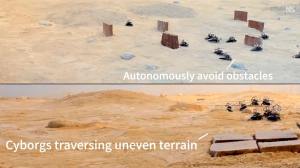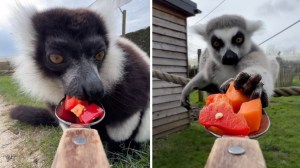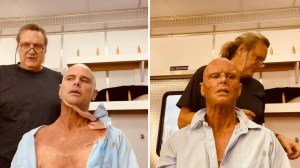In the wake of the raging and tragic Australian brush fires that have spread across New South Wales and other provinces, the NSW Park Service has taken to providing manned airdrops of food for those animals who survived the flames but lost the natural vegetation that provided the primary source of nutrition.
One such mission, known “Operation Rock Wallaby”, is being made for the endangered brush-tailed rock wallabies. Compassionate board helicopters with take bins of sweet potatoes and carrots and carefully drop them where the animals congregate. Thousands of kilos have been dropped since the start of the program. The wallabies on the receiving end certainly seem to appreciate this incredibly noble effort in such a terrible time.
In the most widespread food drop ever done for this species, almost 1000kg of sweet potato and carrot have been sent to six different colonies in the Capertee and Wolgan valleys; 1000kg across five sites in Yengo National Park; almost 100kg of food and water were dropped in the Kangaroo Valley, and similar drops have also taken place in Jenolan, Oxley Wild Rivers and Curracubundi national parks.
Operation Rock Wallaby ?- #NPWS staff today dropped thousands of kgs of food (Mostly sweet potato and carrots) for our Brush-tailed Rock-wallaby colonies across NSW ?? #bushfires pic.twitter.com/ZBN0MSLZei
— Matt Kean MP (@Matt_KeanMP) January 11, 2020
Donations to help this and other efforts to help animals affected by the fire can be easily made to NSW Wildlife Information Rescue And Education Service Incorporated (WIRES). WIRES CEO Leanne Taylor issued a statement regarding exactly where the money will go and how it will be used.
The allocation of donations received by WIRES will be used to assist as many animals as possible across our nation – we can and will allocate funding and support to all states and territories where needed to assist animals affected by this crisis. We will soon be announcing some new initiatives that have been made possible through these generous contributions. …Right now, our staff, qualified experts and volunteers are working around the clock to ensure that as many native animals as possible receive the ongoing care, supplementary food, and recovery they need. This includes koalas, kangaroos, wallabies, wombats, possums, echidnas, birds, reptiles and more.
via My Modern Met






